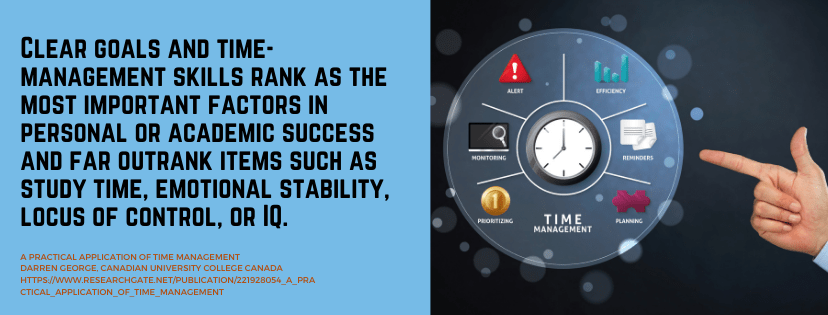The need to manage time in college is a perennial issue for students. Taking care of their families and kids while studying at the same time isn’t easy for them. Meanwhile, ESL students struggle with grammar and spend hours on tasks native speakers handle in minutes. And some work and pursue other talents while hoping to finish an undergraduate program. Some always look for the magic button to solve the lack-of-time obstacle to beating tight deadlines.
University life is a lot like juggling. Your head is spinning, trying not to let five balls drop. How does a mere mortal manage to take care of all these responsibilities? They’re typically assigned homework, exams, a job, and raising a family. It comes down to time management. You should think about handling exams and organizing your time better, juggling your work, home, and university life efficiently. Besides brain food, you ought to eat some fortifying foods like fruits, vegetables, and nuts. These should help you retain more physical and mental energy to go about with all tasks.
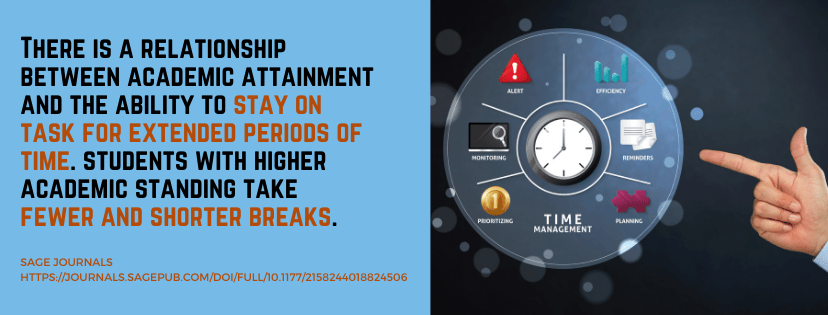
To stay on your toes during the exam period, you can offer yourself the best chance of success by prioritizing your priorities. In turn, this minimizes stress, leading to your success while attending a university.
A survey conducted by Greenfield Online found that a majority of college students (46 percent) think they were not prepared by their high school for college organization skills. The survey also found that 54 percent believed “getting organized and staying organized” would result in better grades. Such results indicate that time management is a contemporary issue that many students suffer daily. Learn more about it and the different doable strategies to give you a promising outcome of managing your time well. Hopefully, you can apply many tips and improve your daily school life routines.
- What is Time Management?
- Benefits of Time Management
- Challenges of Time Management
- 20 Realistic Time Management Strategies
- Make a To-do List.
- Be Flexible.
- Work According to Your Body’s Energy Cycle.
- Adopt Elon Musk’s Time Blocking Method.
- Say No.
- Give Up On Multi-tasking.
- Adopt Pareto’s Law
- Apply The Ivy Lee Method To End Your Day
- Determine How Long Each Task Takes
- Realize A Morning Routine that can Increase Your Momentum.
- Take Advantage of Automation.
- Understand the Planning Fallacy.
- Take a Break.
- Manage Distractions.
- Get Rid of Wait Periods.
- Organize Day-Time Communication.
- Clear the Clutter.
- Utilize Agile Framework.
- Set Up the Right Tools.
- Try “Strategic Laziness.”
What is Time Management?
Time Management refers to the discipline of organizing your time between specific activities and prioritizing what needs to be accomplished in simpler terms. Time management will allow you to work smarter – not harder – so that you can achieve more in a short period, even when you have little time and under a lot of pressure. It can ruin your effectiveness and cause stress if you cannot manage your time well.
As for Time Management Skills, this is a set of skills allowing you to utilize time as efficiently as possible during set intervals. These skills include target setting, prioritization, communication, goal-setting, planning, planning, problem-solving, and stress management. These skills influence your performance and life, making you more successful when mastered.
Benefits of Time Management

1. You won’t miss important deadlines in your daily life.
It’s the projects and deadlines in life that help you stay on track. Your FAFSA may need to be turned in on time, the housing application must be turned in early so that you have on-campus housing next year, you should arrive at your friend’s party at the right time, and the birthday gift for your mom must be at the post office in time. Life can get ugly very quickly if you fail to manage your time.
2. You won’t miss important deadlines in your academic life.
Are you working on a paper? Is a report due? A group assignment, perhaps? You may not be able to continue school if you miss academic deadlines. The benefit of good time management is that you turn in your homework on time — and even get a good rest before the deadline. You’ll be attending classes feeling fresh and calm.
3. You’ll feel no or less stress.
It becomes a lot less stressful when you complete that pesky paper within a reasonable period. This method is much more effective than panicking the night before a deadline. Nothing feels better than knowing you’re not stressed about anything in school.
4. You’ll have more flexible time for other things.
You can’t enjoy life. For example, you might miss out on the spontaneous gathering in your dorm or a roommate’s surprise birthday when you are always behind on your work and always late on your projects.
5. You’ll have a better physical, mental, and emotional condition.
When you master the art of time management, you get more time to spend on keeping your health in check. You can also feel your body, emotions, and mind getting more relaxed when you pace yourself.
6. You can enjoy your college life more.
No matter how much you dread the research paper, even if you decide to just hang out with friends on the quad, it still lingers in the back of your brain. With good time management, you can let yourself relax and rock that paper, knowing that you have already put the time aside in your schedule.
7. You will be trained in managing your time when you enter the corporate world.
The cycle of always being late and always being behind can end when you graduate. But there’s no assurance to that. Time management skills you learn while in college will serve you well in the future. Besides, how can you venture out and make a difference if you are always running late?
8. You’re giving others a huge favor if you’re never late.
It’s not easy dealing with an always late friend: the situation can become challenging after a while. Making the transition to being an independent adult with your time management skills will make life a lot easier on your friends, family, and yourself.
Challenges of Time Management
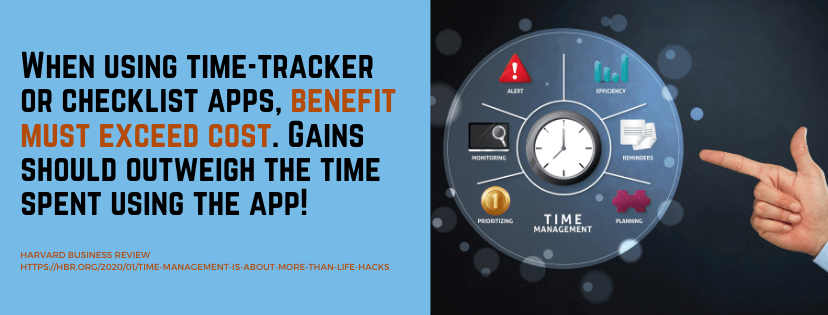
Here are ten common errors that prevent you from staying in line with timelines and disrupt your workflow.
1. When you start your day late.
Failure to start your day early or on time will hinder your efforts to accomplish your daily tasks. Influential leaders are also likely to get up early. “Early” is different for everyone, so figure out what time of day you would feel the least rushed. Starting your day late almost guarantees you’ll feel rushed later.
2. When you multitask.
We tend to fall into the multitasking trap by striving to become proficient at what we do. In theory, you can multitask if you need to get ahead of your workload. Trying to do too many things at once makes it hard to focus on everything equally, and a sequenced approach saves a great deal of time. It is, therefore, essential to be well organized and possess high levels of concentration, creativity, and precision if you want to be good at multitasking. You don’t have to multitask to get things done. Choose your battles with care so that you don’t get overwhelmed. When the circumstances permit it, focus on one task at a time. Getting a sense of completion and a purpose of quality in your work will enhance your productivity.
3. When you procrastinate.
The biggest enemy of your success is probably procrastination. Making excuses and going through the motions will hinder your concentration and ability to succeed, no matter how good your intentions may be. Having to prioritize work in this way creates a considerable backlog, as well as a feeling that you haven’t started your job, except if it is urgent.
To avoid wasting your time, you need just to begin taking action. By doing this, you will be able to capture your imagination, draw your attention, and become involved with the project in no time. You can also break down the task into manageable bits if the previous suggestion doesn’t work.
4. When you fail to prioritize.
The more you have to devote to your tasks, the harder it might be to determine your top priorities. A colleague might suggest that you focus on an urgent issue that has just come up even though you have just started working on a high-priority task. This indeed creates a confusing system of prioritization.
5. When you fail to manage distractions.
Although we can communicate more easily with social media platforms and a range of communication channels, they are increasingly distracting. Did you ever spend an hour watching your Twitter or Instagram feed when all you meant to do was scroll?
No matter if the phone keeps ringing or you constantly receive notifications from either message groups or social media, interruptions like these disrupt our creative process and break our workflow. Close all applications on your phone and all your notifications, schedule uninterrupted time, and waste as little time as possible on what does not impact your work.
20 Realistic Time Management Strategies
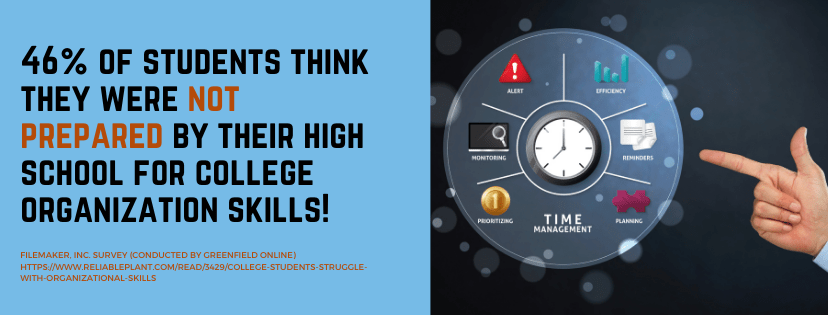
Make a To-do List.
A to-do list is a list of everything you want to accomplish that day. The billionaire Virgin Group founder, Sir Richard Branson, advocates using to-do lists. Branson insisted that it is only helpful if you complete your to-do list rather than explaining its benefits.
It is possible to create a physical or virtual to-do list. To-do lists can be made with pen and paper. Make a list of your tasks that need to be done. As you accomplish the items, cross them off. Many to-do-list apps can be downloaded through your mobile phone or computer. It’s a lot like making a to-do list by hand. Just list everything you need to do and check them off as you finish it.

A huge advantage of using a to-do list is that it helps you visualize your daily work in one place. This is also your chance to congratulate yourself if you have completed most of the things you said you would achieve. It allows you to keep track of one task at a time.
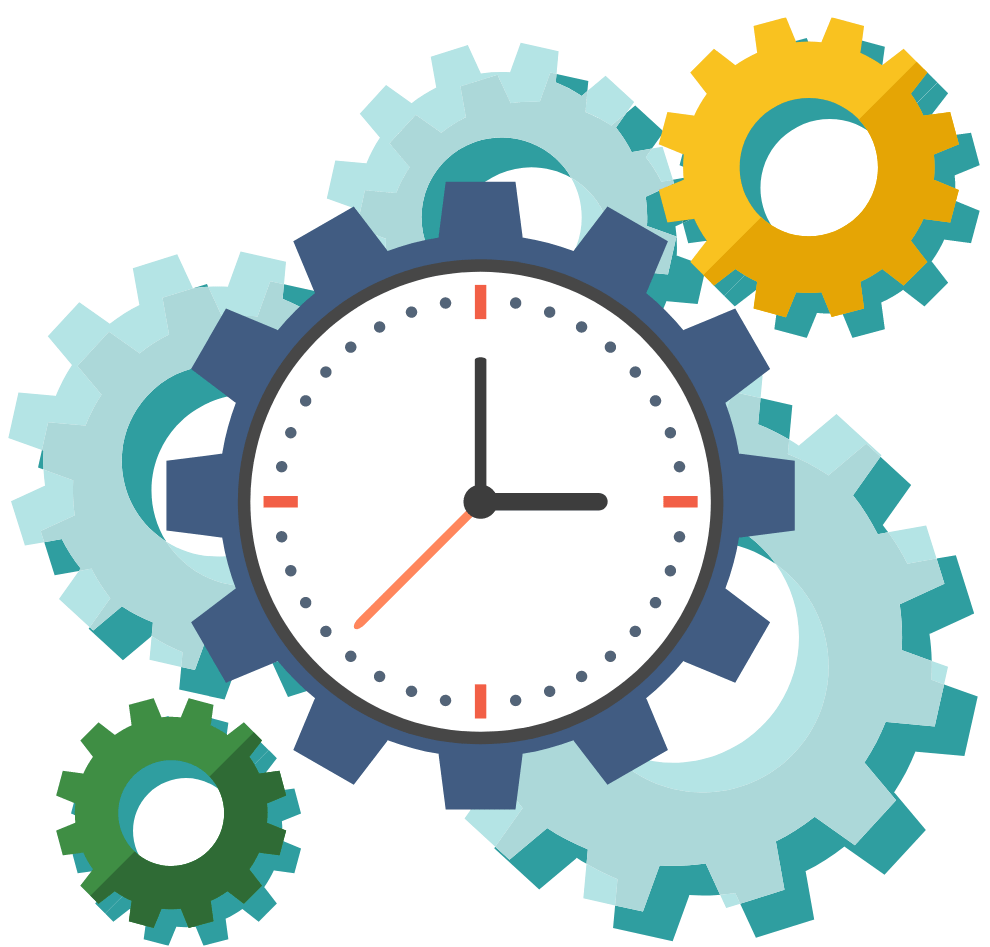
Be Flexible.
Time management requires flexibility. Your team is likely to perform better on schedule when you give them flexibility when they work. If you wake up earlier in the day, you might be more productive, but the rest of your team might work more efficiently at night.
Former US first lady Michelle Obama believes in flexible working practices. She particularly mentioned that being flexible is the most effective way to move forward. Communication tools are needed for real-time and offline communication to introduce flexible working or studying. Several productivity software products simplify the process of keeping in touch with colleagues and customers, whether that’s by email, calls, or messages.

This strategy allows you to adjust yourself according to your teammates, classmates, and colleagues’ pace. Along with communication, being flexible will result in a more productive and effective outcome, especially when working with others.

Work According to Your Body’s Energy Cycle.
Time management tips are inherently personal; therefore, the best way to manage time is to choose a routine that is effective for you. When you’re more productive early in the day, be sure to plan your most intense work then. Then it would help if you organized your time so you can do paper works in the morning and creative works at night.
The bottom line is balancing time and energy. Several studies have demonstrated our power intensities fluctuate naturally in the daytime – this is often referred to as our “personal productivity curves.” Every individual is unique, but we all tend to do things somewhat the same way.

You can maximize your productivity based on your energy levels. You’ll know what time of day you’re most conditioned to perform essential tasks.

Adopt Elon Musk’s Time Blocking Method.
Elon Musk, CEO of Tesla, intends to consistently manage his day by planning it out in five-minute sections. Each segment contains a specific task or activity that has to be accomplished. If you look at Elon Musk’s success (and his stock price), you’ll understand how this version of a to-do list may seem crazy at first. Not everyone will handle this method—if it seems daunting, you could change the five-minute intervals to a 15-minute break or hourly tasks.
With this method, you can begin by following these steps: Make two columns in your notebook. Note down each time block in the left-hand column. Write each task on the left column with its respective time blocks and estimate the amount of time per task will complete. For notes and commentary, use the right column. You can also add buffer times for unexpected events or adjustments.

With these short time intervals, you can consistently check if you’re being productive or not. This also allows you to monitor your tasks strictly.

Say No.
Getting better at saying no, just like learning to accept your flaws, takes practice. It’s not always necessary to say no immediately. A Greek philosopher, Pythagoras, famously said that the oldest, shortest words in the English language, “yes” and “no,” are the ones that need more time to decide on. By telling people no, you limit yourself to saying yes to the right things. You’ll have more time for the tasks you should say no to if you prioritize and say yes to the ones you can do.
By saying “yes” to every task thrown your way, you will likely lose time focusing on less important tasks when they go unfinished. Asking a question when you are asked whether you have any time can help you learn to say no. You can start to ask how long the task takes when the deadline is, it should be prioritized, and if you’re the best person who can accomplish such a task.

This strategy will help you manage tasks that you can do and those that you can’t. It won’t force you to do anything for the sake of pleasing others.

Give Up On Multi-tasking.
Optimizing your attention with an effective schedule is the ultimate goal. It’s up to 500% more productive to work on a project when you’re focused on it. By contrast, we lose 20 to 80% of our productivity when we multitask or switch contexts while we are working. One powerful way to manage time is to tackle only one task at a time. We have been proven to get more done by focusing on one thing at a time.
We’ll cover more ways to reduce school distraction in other sections, but you simply need to pay more attention to the many things you do when multitasking. Write down what’s on your mind as soon as you feel you’re losing focus before returning to the task. You can often loosen distraction’s grip by acknowledging it.

Giving up on multitasking will allow you to simply focus on one task at a time, making the outcomes and results at their best quality.

Adopt Pareto’s Law
In Pareto’s law, also called the 80-20 rule, the effects of roughly 80% of cases can be attributed to 20% of reasons. It means that you put in at least 80 cents worth of work for every dollar you earn. In his studies, Pareto dealt with a wide range of topics, including science and engineering. When developing a time management strategy, it’s essential to consider the 80/20 rule. Use this rule to determine your most profitable tasks and outputs.
Put a significant amount of time into your “must-have” tasks and leave your “nice-to-have” functions until you have spare time to finish them up. We recommend focusing your time on projects that drive significant value to your studies. It is up to you to sign up for missing out on some of your usual tasks. Otherwise, you will be wasting time on high-value tasks instead.

If you do the complex tasks first, you can finish them earlier and afford to do the least prioritized ones at a more comfortable pace.

Apply The Ivy Lee Method To End Your Day
Want to be productive and manage your time properly? Put in the work! This is where the Ivy Lee Method comes into play:
- Each day, when you finish work, write down some important things you must do and reach the next day.
- Please prioritize each of these six items according to their importance.
- If you get to work tomorrow, only focus on your first assignment. Work until that task is over and done before proceeding to the second task.
- Continue your list until you have completed all items. Any remaining items are moved to the following six-item list the day after.
- Repeat.

The effectiveness of this technique can be attributed to several factors. One of the things it does is to make you focus on one task at a time. Second, to plan each day only in six slots, you must be more deliberate than before. Also, by outlining your tasks beforehand, you can get started faster.

Determine How Long Each Task Takes
Your daily routine may involve merely getting stuff done, so you have no clue how long a task will take. Decipher how long creating a report take? How about updating your team members about the status of your project? Don’t put too much stress on yourself by not knowing how long it takes to complete each task. Time management, according to motivational speaker Zig Ziglar, is at the core of success. Optimizing your day will give you more time to work with and greater chances of success.
To figure out where your time goes (or where it’s getting wasted), start by tracking it. To-do lists and time blocks can be tailored to each task’s length, which will enable you to control your time better. Consider automating functions that take a considerable amount of time.

By knowing how long each task takes, you can plan your time blocks.

Realize A Morning Routine that can Increase Your Momentum.
You can start managing your time as soon as you wake up. It’s possible to get yourself prepared for a productive, meaningful day with a great morning routine. Regardless of the pattern you choose, the following qualities should mark every workout:
- Wake up on your alarm. Get up with some excitement and activity instead of extending your alarm.
- Take some time each day to write, do workouts, or make a to-do list to keep your mind clear.
- Read something you enjoy, make a phone call to a friend, check your Instagram (if that helps), or do something positive.
- Get a head start on a meaningful project that you are passionate about.
- Exercise is beneficial to you as long as it is done before getting to school. Even a quick walk can help you wake up and prepare for a productive day.

This may seem like it can make you busy in the morning, but focusing on the tasks beforehand allows you to be more productive during the day.

Take Advantage of Automation.
A task that takes up a lot of your time or that occurs constantly should be automated. Software or some kind of machine is likely to be implemented. The co-founder and CEO of Linkedin, Reid Hoffman, argues in his book Blitzscaling that you should perform every task yourself until it becomes impossible. The time has come to introduce scheme or workflow automation. Adam Stone, CEO of D-Tools, gives a conflicting opinion on when process automation should be introduced. Any action repeated twice has to be automated, he claims.
Automating at any point in the process removes manual work from your day and allows you to devote more time to more important duties. Identify tasks that you do too much of or repeat over and over, and introduce automation. Look for an automated upload method to manually enter data on a spreadsheet for any project or research procedures you need to do.

Automation saves you precious time and effort.

Understand the Planning Fallacy.
We sometimes assume we can accomplish many things in one day. This is part of being humans. While you may work at least 8 hours each day, a study demonstrates that the average worker like managers, staff, and administrators could only maximize their time for 12 hours in a week, so that’s about 2.5 hours in a day.
Our tendency to overestimate the length of a task is called the planning fallacy. Understand how you spend your time and do not think you can suddenly work eight hours a day. You’ll be setting yourself up to be stressed, overworked, and overwhelmed.

You can understand your capabilities and limitations as a student. You won’t need to feel overworked or burnt out.

Take a Break.
When you take a break while working on a project with your team, it can seem like you’re out of place. Trust us; you are doing your body more harm than good when you refuse to take a break! The singer and actor Selena Gomez has expressed a clear desire to take a 90-day break from social media. During her experience, she described it as “a refreshing, calming, rejuvenating feeling.”
The benefits should permeate our lives daily. But they rarely do. We are experiencing stress and burnout because of the always-on mentality and the technology that enables it. Take regular breaks during your college days to combat this condition. After taking breaks, make sure you maintain your concentration.
Regular breaks make it easier to stay focused. With a regular refreshment, you can approach the task with a new state of mind. Note down any new ideas for your research or case study when you get while taking that break on your phone or paper, so you won’t feel rushed when you get back! You might not have time for any break because of the number of tasks you have to do. Remember: you do NOT need to fit everything into a single day! Know your pace.

When you take a break from all your study and tasks, you can be refreshed. So when you come back, you’ll have more focus and can be more productive.

Manage Distractions.
When it comes to dealing with distractions, you have two choices. It all comes down to self-discipline.
- Get rid of the distractions.
Taking breaks from school can help you achieve this. The management of time and distractions is made more accessible by not having to meet everyone face to face. If you’re the type who becomes more productive when you study or do a project alone, then leap at removing your distractions. Focus on software and other tools to enhance results instead.
- Embrace the distractions.
The other way is when distractions are unavoidable, you cannot avoid them. Distractions can be managed by setting aside time to deal with them. This option requires you to practice time management and patience too.

This strategy works because you will have the power to handle your distractions by yourself. So either way, you have to know if they’re valuable to make you grow, or you should get rid of them entirely.

Get Rid of Wait Periods.
Would you say you have lost a lot of time waiting for meetings to finish? Could you start a discussion without waiting on all of your teammates to arrive? Some of your classmates and colleagues are probably living far from your school or meeting place. They will have to commute and move from one place to the next. Removing the commute will not only save them fuel money but also save wasted time.
Hence, get rid of commuting and waiting periods. Maximize productivity by using remote-style meetings. The time you have to stay on your team member will already be used for planning something more prominent. Allow everyone to participate in an online forum or teleconference. Besides, people are more likely to respond to calls and chats when they are doing tasks remotely. There will be fewer distractions and more focus on conversations.

You can maximize time instead of waiting and wasting it. There will be no need for a person to commute from one place to another when online resources and tools are available to increase productivity.

Organize Day-Time Communication.
It’s hard to stop reviewing your apps and tools for communication when you’re on a time-blocked schedule. Checking their emails and apps every few minutes is how most people spend their day. Conversely, our creativity, productivity, and happiness go up when we don’t communicate as much. It has been identified that communication typically occurs in sequential time — swift exchanges of information and then comes long gaps of silence — and that we waste less time if we do so.
Members of a team can develop ideas and get valuable input during rapid-fire communication courses. During long quiet times, everyone is likely busy working on ideas discussed for the communication period. However, if your team wants to communicate in bursts, everyone must be on the same page. This means setting a particular time of day for collaboration rather than simply being available.

You can save more time with this strategy as you don’t need to monitor your inbox or communication app for any message or emails. Having a specified time to collaborate is always more effective.

Clear the Clutter.
The people around you can significantly influence time management. An untidy desktop—both physically and digitally—can make you lose focus and cause some other predicaments. Neuroscientists at Princeton say that an unorganized place sometimes distracts you and can cause you to be less productive and have an increased sense of stress. You can quickly become distracted by the simplest things like some notifications, a call, lists, or errands to do.
Here are some hacks to improve your thinking space:
- You have to place constraints on your accumulation. The best way to stop accumulating more is to set proper limitations, regardless of whether they are social media, open tabs on your browser, web pages, or notebooks.
- Deep Work’s author suggests becoming simple on your technology choices: Clear out software that isn’t bringing you any value. You can delete or add specific tools according to your preference.
- Do a monthly space review: Remove your physical and digital clutter by cleaning and sorting. It’s even possible to check them regularly, so you start fresh every day.

Keeping yourself organized physically and mentally will make you concentrate more on your tasks.

Utilize Agile Framework.
You might find it helpful to abide by a set framework’s guidelines if you have a team working with tight deadlines. Your team will achieve their SMART goals more effectively if you complete Agile training or learn Agile methodologies yourself. A feedback-loop approach to Agile helps teams accomplish their goals faster. Many agile methods can be used, including Lean software development, Agile Scrum methodology, and Kanban.
Companies like Apple, which belongs to the Fortune 500, rely heavily on Agile methodologies to improve service and reduce turnaround time. Former Apple CEO Steve Jobs once said, “When you innovate, mistakes are inevitable. It’s best to admit them swiftly and move forward with improving your other innovations.”

Agile methodologies can help you and your team when you want to go for innovations.

Set Up the Right Tools.
A person’s atmosphere impacts their time management, and it also influences a person’s digital environment. The tools you use daily for core work—messages, chats, emails, and document sharing—will significantly impact your ability to spend your time effectively.
It’s essential to ensure they don’t interfere with meaningful work. You could avoid distractions by performing an assessment and audit to ensure that all of your notifications are muted when you need them. Using the tools you have available for you determines what you do. But you can always take advantage of some common valuable apps and software like Microsoft Teams, Google Calendar, or Slack.

The right tools will always support your tasks and studies. When you choose suitable applications, they serve as your reminders daily.

Try “Strategic Laziness.”
Being productive might be one way to maximize your time, but laziness is another way to increase it. However, “Strategic Laziness” is not the same as “lounging around.” Instead, it’s about prioritizing what’s important and letting yourself fail on the stuff that doesn’t matter. Focus on what matters and don’t worry about being perfect. Prioritize what is crucial for you and settle for poor performance on the rest.

Human as you are, you can’t always keep doing things perfectly. This will only result in getting burnt out. Cut yourself some slack; allow yourself to make mistakes sometimes!
